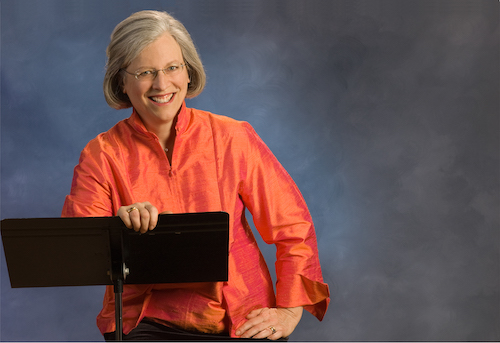Musica Sacra finds a consolatory warmth in contemporary Northern music
Musica Sacra opened its season Saturday night at First Church Congregational in Cambrige with a program of contemporary music for chorus and strings (via livestream for this listener). In the event, though, there was more tying together the night’s offerings than simple matters of instrumentation.
Compositional singularity, for one.
By far, the evening’s most imaginative effort was its most recent: Anna Thorvaldsdóttir’s Ad Genua (To the Knees). Written in 2016 on a commission from the Philadelphia-based choir The Crossing and conductor Donald McNally, the piece was conceived as a response to Dietrich Buxtehude’s sacred oratorio Membra Jesu Nostri.
In it, Thorvaldsdóttir’s concocted a sound world that is at once decidedly du jour (extended techniques dominate her string writing and Ad Genua’s harmonic textures are often thick and pungent) and ancient, with simple, diatonic melodies frequently emerging from and floating atop its densely chromatic and unpitched foundations.
Saturday’s performance, which was led by Musica Sacra’s artistic director Mary Beekman, captured Ad Genua’s gestural content well: the splattering, repeated string figures and keening vocal lines came across strongly. Though the text was periodically muddled, that wasn’t entirely the ensemble’s fault as Thorvaldsdóttir’s word setting is sometimes quite awkward. Besides that, the group’s account of the coda was fervent and cleanly balanced.
Their interpretation of Arvo Pärt’s Berliner Messe was similarly warm-hearted. Drawing on the composer’s embrace of Minimalism and interest in tintinnabulation, this 1990 setting of the Roman rite (revised most recently in 2002) is astonishingly straightforward, presenting the main elements of the Mass Ordinary in about twenty minutes.
Beekman’s reading drew out the music’s contrasts, particularly the distinction between its plaintive, prayerful episodes (like the “Kyrie” and “Gloria”) and the more extroverted ones (the “Veni Sancte Spiritus” danced gracefully). The special spots—like the resonant ending of the “Agnus Dei”—shimmered. Tenor Bjorn Poonen and bass Paul Gallagher intoned their “Alleluiavers” solos firmly.
Another kind of Minimalism—at once more commercial, less sophisticated, and far more predictable—marked Ola Gjeilo’s Dark Night of the Soul. Setting a 16th-century text by St. John of the Cross, the piece channels Philip Glass about as much as it does John Williams.
That’s not to say it’s poorly written. On the contrary, Gjeilo’s handling of voices is thoroughly idiomatic and flattering. The undulating, quiet middle section offers fetching melodic ideas and the soft ending comes as a welcome surprise. But harmonic passivity coupled with an over-reliance on ostinatos and arpeggios (whole stretches of the piano writing in the second half cut uncomfortably close to Dario Marianelli’s score to 2005’s Pride and Prejudice) will only carry a work so far.
Musica Sacra’s performance of Dark Night on Saturday didn’t quite bring it the rest of the way. True, the reading excelled in rhythmic energy, especially in its outer thirds. But it was also dogged by spotty intonation and, especially, blurry enunciations of text.
In contrast, the ensemble’s take on Pēteris Vasks’ The Fruit of Silence came across with winning tenderness and clarity. The score’s setting of words of Mother Teresa follows a foreseeable-enough course, wending its way from E-flat major to land on a glowing C-major chord on the word “peace.” Even so, the flowing, shapely performance Beekman drew her forces more than compensated for the music’s workaday structure.
Musica Sacra presents “An American Christmas” at 7 p.m. on December 10 at First Church Congregational in Cambridge. musicasacra.org
Posted in Performances
